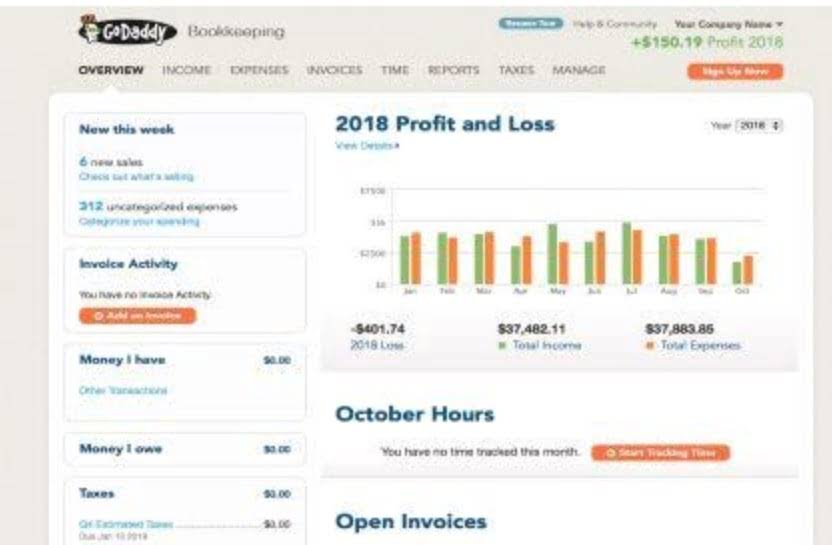
Keep in mind, though, that this report is more accurate and helpful if your organization uses an accrual method of accounting, rather than the cash method. Accrual accounting allows nonprofits to record revenue when earned and expenses when incurred rather than when the money actually enters or leaves the account (which is how cash accounting works). As a result, it can provide a more accurate statement about when financial changes occurred, and a more accurate nonprofit balance sheet. Nonprofit financial statements paint a comprehensive picture of the activities and operations of the nonprofit. Ultimately, your nonprofit financial statements are snapshots of your financial health and activities that you can use to improve your decision-making and secure more support down the line.
- Many industry watchdogs rate nonprofits according to their transparency in the publication of these financial statements.
- Furthermore, WWF adds graphs that illustrate the nonprofit’s operating revenue and program spending growth over the past decade.
- Financial information broken out through various lenses will give you the most complete picture of fiscal health.
- You should also include non-current assets on your Statement of Financial Position.
- The purpose of the notes in nonprofit financial statements is to provide additional information and explanations that are not included in the main financial statements.
- Compiling the four major financial statements for your organization benefits your internal operations, external compliance, and overall level of accountability from year to year.
Why Do Nonprofits Need Financial Statements?

Nonprofits use a format similar to the cash flow statement on which for-profit organizations rely. You should also include non-current assets on your Statement of Financial Position. That includes long-term investments, property, equipment, and anything else you expect to convert into something other than usable cash within the year. Donors aren’t the only relationships that benefit from staying on top of financial statements. You can directly impact a few stakeholder categories by bringing that same level of trust and transparency through reporting.
Nonprofit Accounting Terms
Nonprofit organizations play a crucial role in society by addressing various social issues and providing valuable services to communities. Like any other organization, nonprofits need to maintain financial records statement of financial position non profit to track their income, expenses, and overall financial health. Nonprofit financial statements are essential tools that provide a comprehensive view of an organization’s financial position and activities.
The Importance of Working with a Nonprofit Accounting Firm
- As a result, it can provide a more accurate statement about when financial changes occurred, and a more accurate nonprofit balance sheet.
- When assessing the financial health of a nonprofit, it is important to look at both new financial and for-profit income statement.
- Current assets are those that can be converted into cash within one year, such as cash, accounts receivable, and inventory.
- An accountant can help you categorize these funds and provide you with accurate information as to how much your organization has available to use for future projects, fundraisers, charity events, etc.
- An organization’s 990 form is publicly available and may be found on their website or on a nonprofit database such as GuideStar.
The one that gives the most insight about the overall financial health of your nonprofit is known as the statement of financial position, also known as the nonprofit balance sheet. The Statement of Cash Flows is a financial statement that shows the sources and uses of cash for a specific period. It helps stakeholders understand how a company generates and uses cash to support its operations, investments, and financing activities. Unlike the balance sheet, which shows the company’s financial position at a specific point in time, the Statement of Cash Flows provides insight into the actual cash flow movements over a period of time.
To calculate your months of LUNA, you’ll need to take the total unrestricted net assets found on your nonprofit balance sheet and subtract the property and equipment assets (found in the first section). This is because those assets are tied up in physical belongings (property, software, etc.) and cannot be liquidated to cover additional liabilities. Then, divide this number by the average monthly expenses incurred by your organization. The result is the number of months that you can cover with the liquid assets you have on hand.
- When you first think of financial statements, your mind might jump to the standard balance sheets, income statements, and cash flow statements typically used by for-profit organizations.
- The goal is to summarize where your nonprofit stands financially at a certain point in time.
- The Statement of Financial Position (SOFP) is the correct nonprofit term for the balance sheet.
- Code for Science & Society depicts their financial expenses on this page of their report rather concisely and transparently.
- Understanding the purpose, scope, and intricacies of each type of nonprofit accounting statement is key to success.
- In addition to these statements, nonprofit financial reporting may also include notes to the financial statements.
- This transparency is essential for ensuring accountability and making informed decisions.
The primary reason for this is this method lets nonprofits record revenue when it’s earned. Your nonprofit accountant or accounting team has likely put one together in the past. This can help determine your capacity for growth and if your nonprofit is ready to take on new financial initiatives.

Statement of Functional Expenses
These are expenses such as research and education that directly support the mission of the nonprofit. The remaining 30% or so of expenses are supporting expenses such as management and general or fundraising expenses. Categorizing expenses in this way allows the stakeholders of the nonprofit to determine how effectively the organization allocates its funds to support their programs.

What are Nonprofit Financial Statements?
Not only is the revenue section broken down into categories by funding source in this example, but a distinction is also made between unrestricted and restricted funds. Your nonprofit is required to use restricted funds for a specific purpose, usually based on an agreement made with the major donor or grantmaker who provided the funding. This distinction allows you to understand how flexible your nonprofit’s funding is in addition to how much you have. When making decisions, it is important to consider all factors, including the information provided in the balance sheet. This financial statement provides a snapshot of a company’s financial position, allowing decision makers to assess the company’s liquidity and financial health. By analyzing the balance sheet, decision makers can make informed choices that are beneficial for the organization.

General Ledger Accounts and Chart of Accounts
- Cash basis accounting means that you record revenues and expenses based on when the cash moves in or out of your business.
- It shows how funds are generated and how they are used to support the organization’s mission and programs.
- However, that is not the only reason why you would want to compile these reports.
- The detail in the general ledger accounts will always be available for management’s use.
- The SOFP reflects the overall financial position of your organization at a given moment in time.
And secondly, if you fail to file a 990 for 3 consecutive years, you’ll automatically lose your tax-exempt status. That means its one financial document every nonprofit needs to be familiar with, even if you’re too small for an audit or struggle to pull together an accurate Statement of Activities every quarter. The definition of a financial statement is a simple report that can be pulled together https://www.bookstime.com/ monthly (or as-needed) to give you a view of your financial health. It’s probably the most practical financial statement a nonprofit Executive Director or CEO has for making intelligent decisions for their organization. It is completely ok and acceptable to have multiple versions of your financial reports. The key here is to make sure the information is presented in an accurate and useful way.
